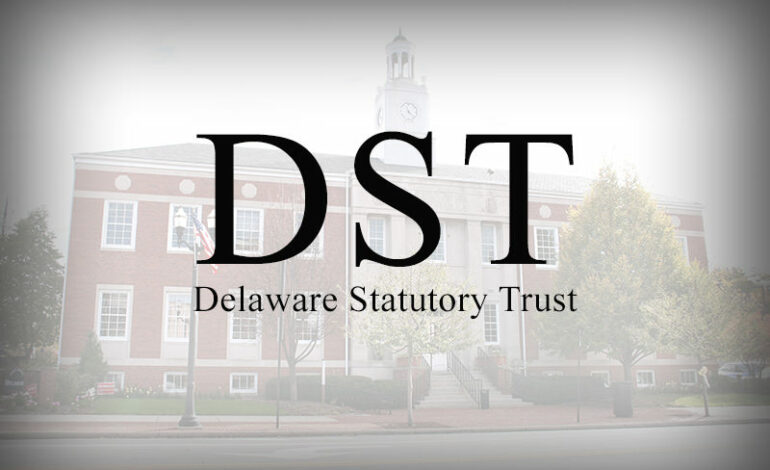
How Delaware Statutory Trusts Are Changing Real Estate Investment
Delaware Statutory Trusts are a pivotal innovation in the real estate investment landscape. Originating from a flexible legal framework, they provide a structure that allows individual investors to own fractional interests in significant, institutional-quality real estate assets. This structure has been crucial in broadening investment opportunities, allowing participation in markets that were previously less accessible to individual investors.
It has democratized access to high-value funding opportunities previously available only to large investors or institutional entities. Integrating 1031 DST options further enhances this advantage. This integration allows investors to defer capital gains taxes through 1031 exchanges, making DSTs an even more attractive funding strategy.
The Structure of Delaware Statutory Trusts
Delaware Statutory Trusts are established as separate legal entities that own, manage, and sell real estate. Investors buy shares in the trust, which holds title to various real estate properties, ranging from commercial spaces and large apartment buildings to industrial complexes and retail locations. The trust is managed by a trustee who oversees all operational aspects, including property management, tenant relations, and regulatory compliance.
Accessibility to High-Caliber Investments
One of the most significant changes they brought was the increased accessibility of high-caliber investments to the average investor. By pooling resources from multiple investors, it can acquire properties that offer promising returns but are typically out of reach due to their high acquisition costs.
Simplified Management and Passive Income
It offers investors a passive investment model. Since professionals manage the trust, investors are relieved of the day-to-day burdens associated with direct property management. It includes dealing with tenants, maintaining properties, and navigating the complex legal landscapes of real estate.
Tax Efficiency Through 1031 Exchanges
A critical advantage of investing in DSTs is their eligibility for 1031 exchanges, which allow investors to defer capital gains taxes on the sale of properties by reinvesting the proceeds into like-kind real estate. They are structured to comply with the requirements of 1031 exchanges, making them an attractive option for investors looking to optimize their tax situations while shifting their funding strategies or diversifying their holdings. Using a 1031 DST facilitates these exchanges and enhances the potential for significant tax savings and investment growth.
Considerations and Risks
While they offer numerous benefits, they also come with specific considerations that must be understood:
Illiquidity
DST investments are inherently illiquid. Unlike stocks, which can be sold quickly in the financial markets, selling interests in a DST can take time and may be subject to market conditions. Investors should consider their need for liquidity and funding time horizon before committing funds to a DST.
Lack of Control
Investors in a DST do not have direct control over the trust’s management decisions. The trustee makes all operational decisions, including property sales or refinancings. While this is advantageous for those seeking passive investment, it is a drawback for investors who prefer direct control over their funding.
Regulatory Considerations
It must comply with specific regulatory requirements, particularly securities laws. Investors should ensure they understand these regulations and how they impact the structure and operation of DSTs.
Delaware Statutory Trusts are transforming the landscape of real estate investment by making high-quality real estate assets more accessible and offering a simplified, tax-efficient approach to property investment. For investors willing to accept the trade-offs of reduced liquidity and control, it allows them to participate in a diversified portfolio of premium properties managed by seasoned professionals. As with any investment, thorough due diligence and a clear understanding of personal investment goals and risk tolerance are essential before entering a DST.



